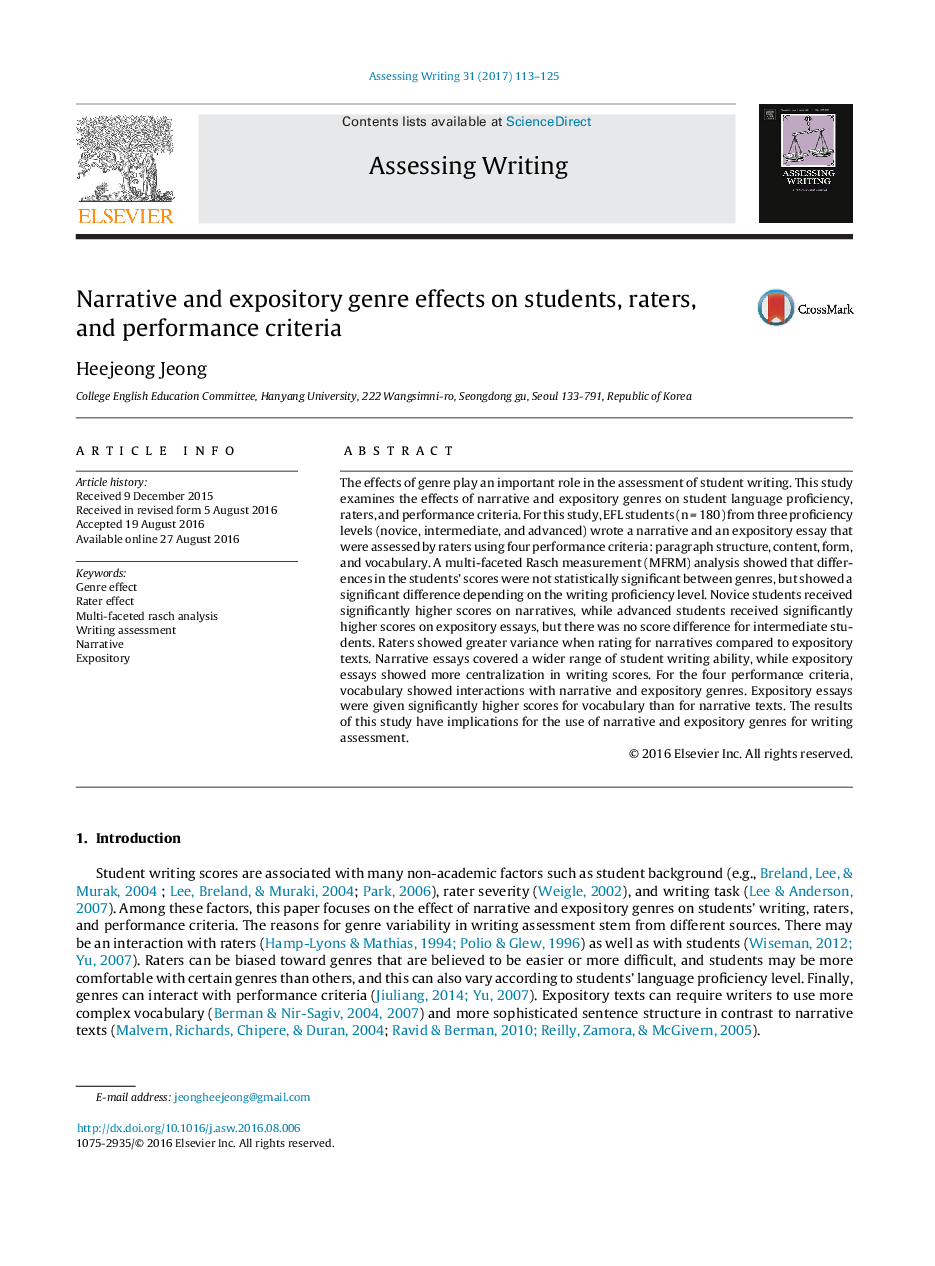| Article ID | Journal | Published Year | Pages | File Type |
|---|---|---|---|---|
| 4935765 | Assessing Writing | 2017 | 13 Pages |
â¢Novice level students received higher scores in narrative essays.â¢Advanced level students received higher scores in expository essays.â¢Raters showed more rating variance when rating narrative essays.â¢Expository essays were given higher vocabulary scores than narrative essays.
The effects of genre play an important role in the assessment of student writing. This study examines the effects of narrative and expository genres on student language proficiency, raters, and performance criteria. For this study, EFL students (n = 180) from three proficiency levels (novice, intermediate, and advanced) wrote a narrative and an expository essay that were assessed by raters using four performance criteria: paragraph structure, content, form, and vocabulary. A multi-faceted Rasch measurement (MFRM) analysis showed that differences in the students' scores were not statistically significant between genres, but showed a significant difference depending on the writing proficiency level. Novice students received significantly higher scores on narratives, while advanced students received significantly higher scores on expository essays, but there was no score difference for intermediate students. Raters showed greater variance when rating for narratives compared to expository texts. Narrative essays covered a wider range of student writing ability, while expository essays showed more centralization in writing scores. For the four performance criteria, vocabulary showed interactions with narrative and expository genres. Expository essays were given significantly higher scores for vocabulary than for narrative texts. The results of this study have implications for the use of narrative and expository genres for writing assessment.
